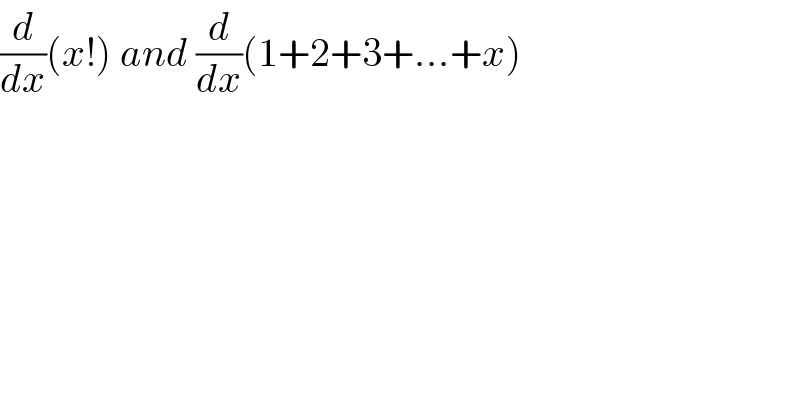
Question and Answers Forum
Question Number 81226 by 20092104 last updated on 10/Feb/20

Answered by MJS last updated on 10/Feb/20
![(d/dx)[x!] doesn′t exist because x! is not continuous 1+2+3+...+x=((x(x+1))/2) (d/dx)[((x(x+1))/2)]=x+(1/2)](Q81232.png)
| ||
Question and Answers Forum | ||
Question Number 81226 by 20092104 last updated on 10/Feb/20 | ||
 | ||
Answered by MJS last updated on 10/Feb/20 | ||
![(d/dx)[x!] doesn′t exist because x! is not continuous 1+2+3+...+x=((x(x+1))/2) (d/dx)[((x(x+1))/2)]=x+(1/2)](Q81232.png) | ||
| ||